The Medical Futurist | 8 min | 26 March 2020
Artificial intelligence does wonders in healthcare. The technology helped issue the first COVID-19 warning before the WHO and CDC did so. It can slash the phenomenon of alarm fatigue. IBM’s Watson Health leverages the power of A.I. to bring drugs to the market faster. And it does so while cutting costs by over 50%.
Speaking of IBM Watson, while the algorithm got its name from the company’s founder Thomas J. Watson, there’s another pop culture figure attached to that name. It’s elementary; we’re talking about none other than Sherlock Holmes’ sidekick, Dr. Watson. It seems like real-world A. I. is taking after those fictional detectives, and algorithms are discovering unusual associations in medicine and healthcare.
From predicting one’s cardiovascular risks by only looking at the eye, through identifying the risk Alzheimer’s years before diagnosis to assessing a patient’s likelihood of being admitted to the hospital, artificial intelligence is continuing on its trend to surprise us. Let’s find out more about the detective work of A.I.!
Brain waves for better antidepressant treatment
Given that only 30% of patients respond well to the first antidepressant prescribed, we might want to employ more effective methods. But the real reason for this astoundingly low effectivity rate? “Right now, treatment selection is purely based on trial and error,” says Dr. Madhukar Trivedi, a professor of psychiatry at the University of Texas Southwestern Medical Center.
By studying the brainwaves of patients, Dr. Trivedi, his team and a machine learning algorithm identified the best antidepressant. They analyzed data from a previous study with over 200 participants whose brain waves were measured via electroencephalography (EEG) and were then prescribed either sertraline (a commonly used antidepressant) or a placebo for eight weeks.
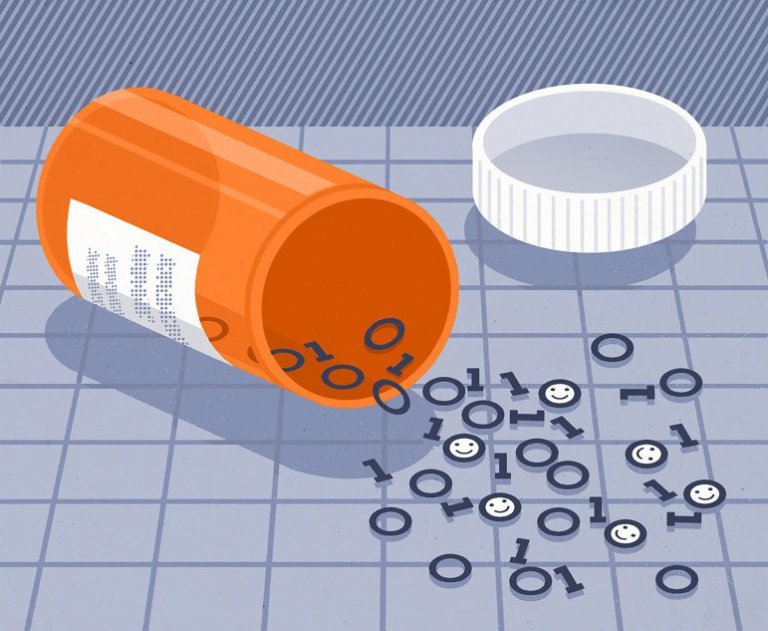
Their results, recently published in Nature Biotechnology, showed that from the data set, 65% of patients with a particular brainwave pattern also showed a strong response to sertraline. One of the paper’s authors, Dr. Amit Etkin, suggested that this method is “far better” than relying on clinical factors, such as certain symptoms, to try to guess whether a drug will have a favourable effect on patients.
Picture perfect: identifying rare diseases from photos
If a disease is rare, then its identification and treatment will pose a challenge. Yearly, about half a million children are born with a rare hereditary disease around the world. However, many of these cases present with specific physical features that can help in their identification. Pediatricians might miss these due to the fact that they’ve never seen such cases. However, nothing escapes the meticulous eye of A.I.
In a study from the University of Bonn and the Charité – Universitätsmedizin Berlin, researchers used an A. I.-based software programme on data from 679 patients with 105 different diseases caused by a change in a single gene. These include conditions like mucopolysaccharidosis, Mabry syndrome and Kabuki syndrome, where those affected have characteristic facial features.
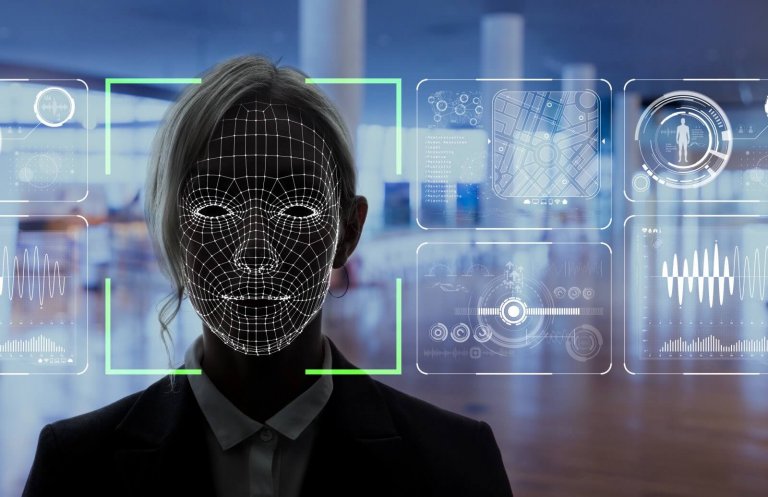
The researchers trained the neural network DeepGestalt with 30,000 portrait photos of those with such rare conditions. “In combination with facial analysis, it is possible to filter out the decisive genetic factors and prioritize genes,” said Prof. Krawitz who worked on this study. “Merging data in the neuronal network reduces data analysis time and leads to a higher rate of diagnosis.”
Their results showed that with the help of A.I., identifying the rare diseases was much more accurate. Their method improved the top 1 accuracy rate by more than 20–89% and the top 10 accuracy rate by more than 5–99% for the disease-causing gene. Using this technique could fast-track identification and treatment of those affected from early on.
From coma to consciousness
Being in a coma or vegetative state can be one of the most ethically-taxing issues in healthcare. Based on doctors’ recommendations, relatives of such patients can decide if they would like to terminate life support. It’s a highly debatable issue what the decision will prolong: the patient’s life or suffering, while also costing both the relatives and the healthcare system. However, A.I. can aid in making more informed decisions in these cases, correctly predicting if one will regain consciousness even after doctors conclude an unlikely recovery.
Such an A.I. system has been developed by the Chinese Academy of Sciences and PLA General Hospital in Beijing. Their algorithm reportedly achieved about 90 per cent accuracy on prognostic assessments. The software analyzes brain scans to re-evaluate doctor’s decisions.
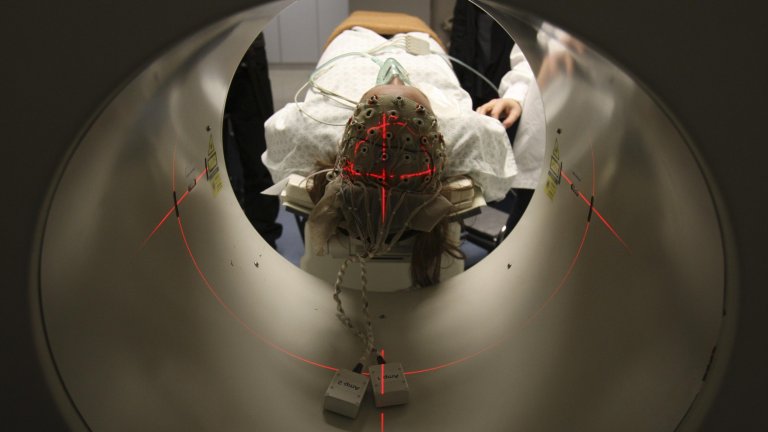
In at least 7 cases where doctors were confident that patients wouldn’t regain consciousness, the A.I. contradicted them and indeed those patients woke up within 12 months of the brain scans. “Our machine can ‘see’ things invisible to human eyes,” Dr Song Ming, first author of the study, said.
This is because the evaluation of patients is done using a brain scan with functional magnetic resonance imaging and the rapidly evolving neural activities can prove challenging for doctors to detect. On the other hand, a machine learning algorithm can detect minute changes indicative of an ongoing recovery. This could help doctors and relatives make more informed decisions when it comes to such patients.
Detecting Alzheimer’s before it manifests
For a condition like Alzheimer’s, patients are commonly diagnosed with the condition after the symptoms manifest. These can be very debilitating, such as memory loss, personality changes and depression. Dr. Benjamin Franc and a research team at the University of California in San Francisco trained an algorithm to look for indicative signs of Alzheimer’s from another angle.
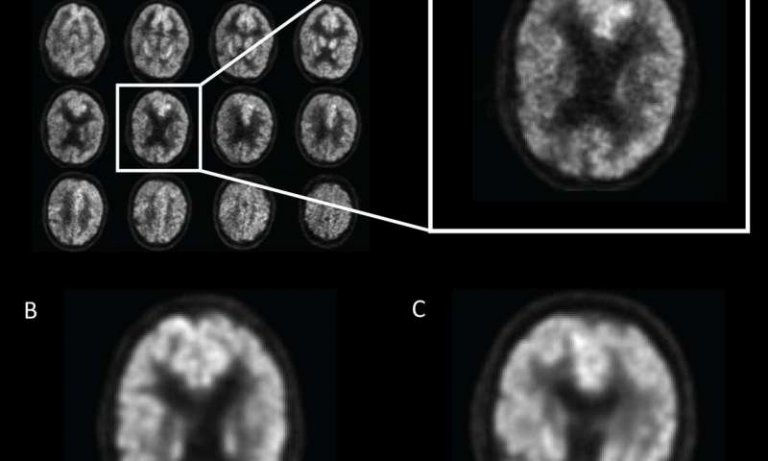
The researchers trained a deep learning algorithm on FDG-PET scans, a method used to study the metabolic activity of brain cells. They used a dataset with over 2,100 FDG-PET brain images from 1,002 patients to teach the A. I. to recognize metabolic patterns associated with Alzheimer’s disease. In subsequent tests, the A. I. detected the condition with 100% sensitivity, on average more than six years prior to the final diagnosis!
As the study’s co-author Dr. Sohn puts it: “If we can detect it earlier, that’s an opportunity for investigators to potentially find better ways to slow down or even halt the disease process.”
Heart attack risk by looking at the eye
Here’s yet another feat of A.I. by analyzing images. Google researchers used deep-learning models trained on data from over 280,000 patients to identify signs indicating long-term cardiovascular risks.
Traditionally, in order to assess those risks, doctors need to manually look at the retina, do blood tests and consider other factors like age and BMI. Impressively, the A.I.taught itself what to look for in retinal images alone after having gone through enough data to identify patterns found in the eyes of people at risk.
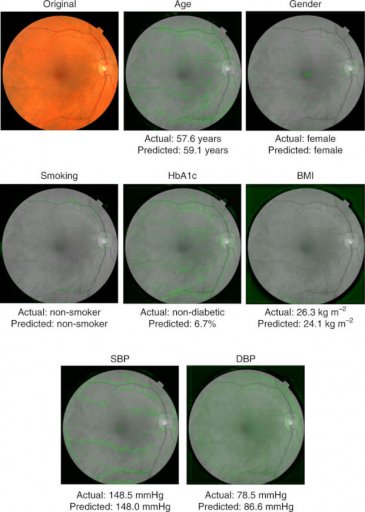
Such technology can prove to be lifesaving, especially considering the fact that some 17 million people die of cardiovascular diseases every year. It can help doctors and even patients run a quick screening test and assess their risk and take subsequent preventive actions.
Points system to assess one’s need of hospitalization
This is the premise of a recent pilot project from Bering Research and GPs at Axbridge Surgery in Somerset, England. An algorithm has been deployed to predict which patients might need to be admitted to a hospital, and to help GPs to work on reducing the risk.
The A.I. allocates points, based on a percentage scale, according to underlying health conditions and contributing factors like elevated blood pressure or smoking habits. The higher the points, the more likely the patient will need hospitalization.
The aim is to have GPs intervene earlier, make accurate predictions on hospital admissions, and to help hospitals plan on allocating its resources.
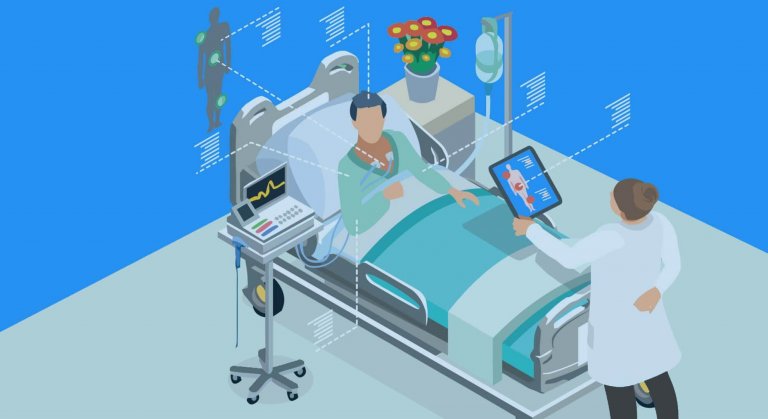
While these unusual associations give a glimmer of hope to millions of patients around the world, we must be cautious about how we take these news. The experiments conducted need to be validated and repeated on a larger scale while considering other contributing factors like comorbidities.
However, it does show that artificial intelligence can become an integral part of not only treating patients but also in identifying risks, and taking preventive measures we have never thought about before.

